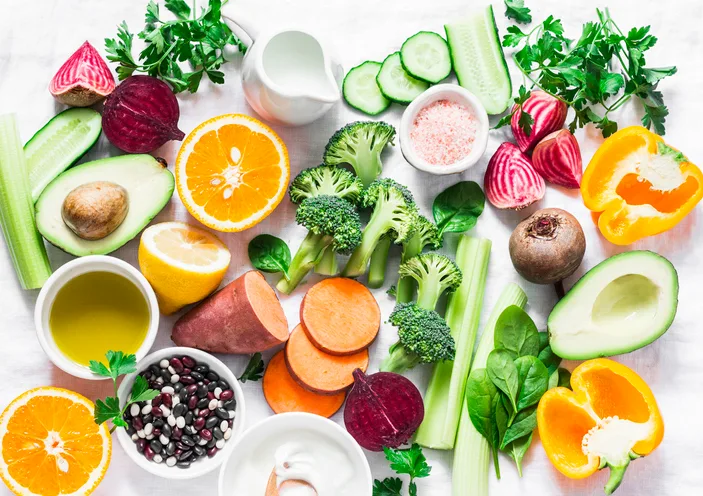Foods to Eat and Avoid with Gout
People with gout may benefit from diets that emphasize vegetables, fruit, and whole grains while reducing the intake of red meat, sugary foods, and foods high in purines.
Gout is a type of arthritis, an inflammatory condition of the joints. Most cases affect the big toe, but gout can affect other parts of your body as well.
Gout symptoms or “attacks” occur when too much uric acid is in the blood. Uric acid is a waste product that your body makes naturally. You also produce it when you digest certain foods.
People with gout experience sudden and severe attacks of pain, swelling, and inflammation of the joints. For most people with gout, these symptoms occur because their bodies can’t remove the excess uric acid efficiently. This lets uric acid accumulate, crystallize, and settle in the joints.
Managing gout is possible with medications, lifestyle changes, and a gout-friendly diet. This article reviews the best diets for gout and what foods to avoid, backed by research.
How does food affect gout?
If you have gout, a doctor can help you develop a treatment plan to manage your flares. This may include changes to your diet and medications that can help prevent gout attacks.
Some foods may trigger a flare by raising your uric acid levels. Many trigger foods are high in purines, a substance found naturally in foods. When you digest purines, your body makes uric acid as a waste product.
This is not a concern for people without gout, as they efficiently remove excess uric acid from the body.
However, people with gout can’t efficiently remove excess uric acid. Thus, a diet high in foods that increase uric acid levels may let uric acid accumulate, increasing the chanceTrusted Source of a gout attack.
Foods with moderate-to-high amounts of purines include:
• organ meats
• red meats
• certain types of seafood
Some vegetables, legumes, and beans also contain purines. However, researchTrusted Source shows that high-purine plant foods do not trigger gout attacks. Eating plenty of vegetables, legumes, and beans is good for your health and may help lower uric acid levels.
Fructose and sugar-sweetened beverages can also increase the riskTrusted Source of gout and gout attacks, even though they’re not purine-rich. Instead, they can raise uric acid levels by accelerating several cellular processes.
On the other hand, research suggests that low fat dairy and soy products could potentially prevent gout attacks by reducing uric acid levels.
What foods should you eat?
DASH diet Mediterranean diet
• Fruits
• Vegetables
• Legumes
• Nuts
• Whole grains
• Dairy products
• Eggs
• Beverages
• Herbs and spices
• Plant-based oils
What foods should you avoid?
• high-purine animal foods
• alcohol
• foods high in added sugars
• Organ meats
• Game meats
• Red meat
• Some types of seafood
• Sugary beverages
• Sugary snacks
• Yeast extracts





ارسال دیدگاه
مجموع دیدگاهها : 0در انتظار بررسی : 0انتشار یافته : ۰